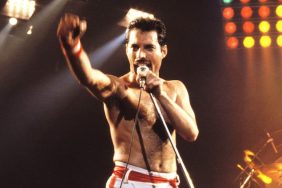Photo: James Leynse (Getty Images)
It’s hard to believe that it’s been more than 20 years since one of the greatest old school rappers of the 90s, Tupac, tragically left us. Tupac Shakur helped define the music genre referred to as gangsta rap with his clever rhymes and serious subjects. During his life, he made 5 studio albums but had so much unused material that various producers were able to construct five more albums with various guest stars including Elton John, Phil Collins, Dido, and others. Although it’s arguable whether it’s his best album, The Don Killuminati: The 7 Day Theory is certainly one of the most significant ones because it basically ended with his death. In a way, these are his last words and his goodbye. Let’s take a look at the album.
The Background
In order to be able to understand the album and the songs on it, you need a little bit of background explained. Namely, during the 90s, the US gangsta rap scene was divided into two distinct territories that were extremely hostile towards each other, the East and West Coast. On the East, there was Notorious B.I.G., Jay-Z, Puff Daddy, and others, while the West Coast consisted of 2Pac, Dr. Dre, Snoop Dog, etc. The biggest feud was, of course, the one between former friends Tupac Shakur and Notorious B.I.G. that resulted in a number of diss tracks, accusations and, above all, violence. By the time Tupac was writing The Don Killuminati: The 7 Day Theory, he had already been shot (he believed someone from the East was responsible) and served a sentence in prison where he started reading works by a Renaissance philosopher, Niccolo Machiavelli.
The Makaveli Persona
Tupac discovered that he had a lot in common with Niccolo Machiavelli and found his writing extremely inspiring. Machiavelli was also, in his time, accused and imprisoned unjustly due to his feud with the influential Italian family the Medici. Interestingly, his most famous work, The Prince, offers practical advice on how to be a cruel and effective ruler. Some people believe that this was, in a way, satirical work aimed at ridiculing the “virtues” of those who are in charge (like the Medici family). However, it is also a handy guide on how to survive in a hostile world. Tupac identified himself with all of this. Enemies were all around him, so he had to take drastic measures. He took on the Makaveli personality to mark this change and warn his adversaries that he’s become a ruthless adversary.
The Songs
Among the greatest songs on the album are “To Live & Die in L.A.,” “Hail Mary,” “Toss It Up,” and “Me and My Girlfriend.” The song “To Live & Die in L.A.” features a relaxed vibe throughout combined with Tupac’s emotional rap that he wrote in about 15 minutes. The song features an infamous interview with Biggie, asking him what he thinks about 2Pac’s new album. The song is considered one of his most famous songs and an anthem of the West Coast. “Hail Mary” on the other hand is about ignoring the enemies and finding salvation in faith. This is the principle he adopted as Makaveli, his new persona. The tranquil of this song is contrasted by both “Toss It Up” and “Me and My Girlfriend.” The former is the direct attack at his once-friend, Dr. Dre because he appeared on a soft R&B song No Diggity with Blackstreet. The latter is interesting because of the effect the song had after Tupac’s death. In the song, he talks about his gun as if it were his girlfriend, while he recounts their adventures. In 2003, Jay Z released a song ’03 Bonnie & Clyde with Beyonce where he sampled “Me and My Girlfriend” in a form of a tribute to the late singer. 2Pac would probably hate it, though.
We’ve told you about some The Don Killuminati: The 7 Day Theory songs, the rest is up to you. Listen to the album and let us know what you think.







